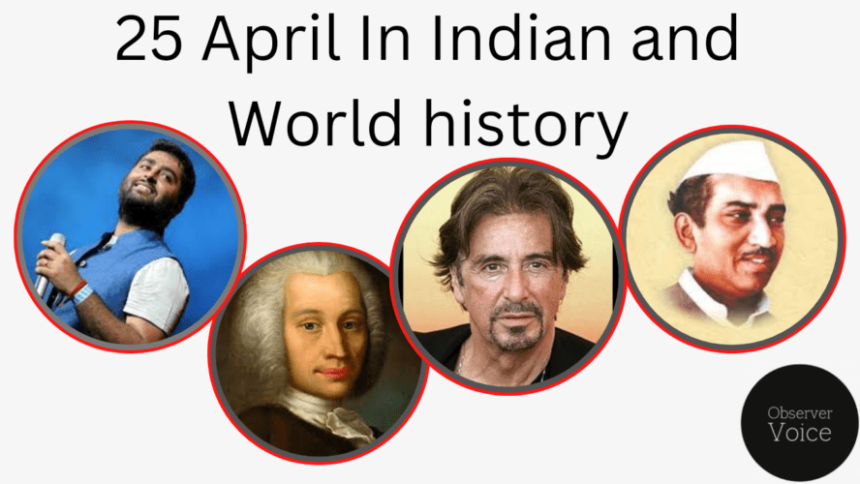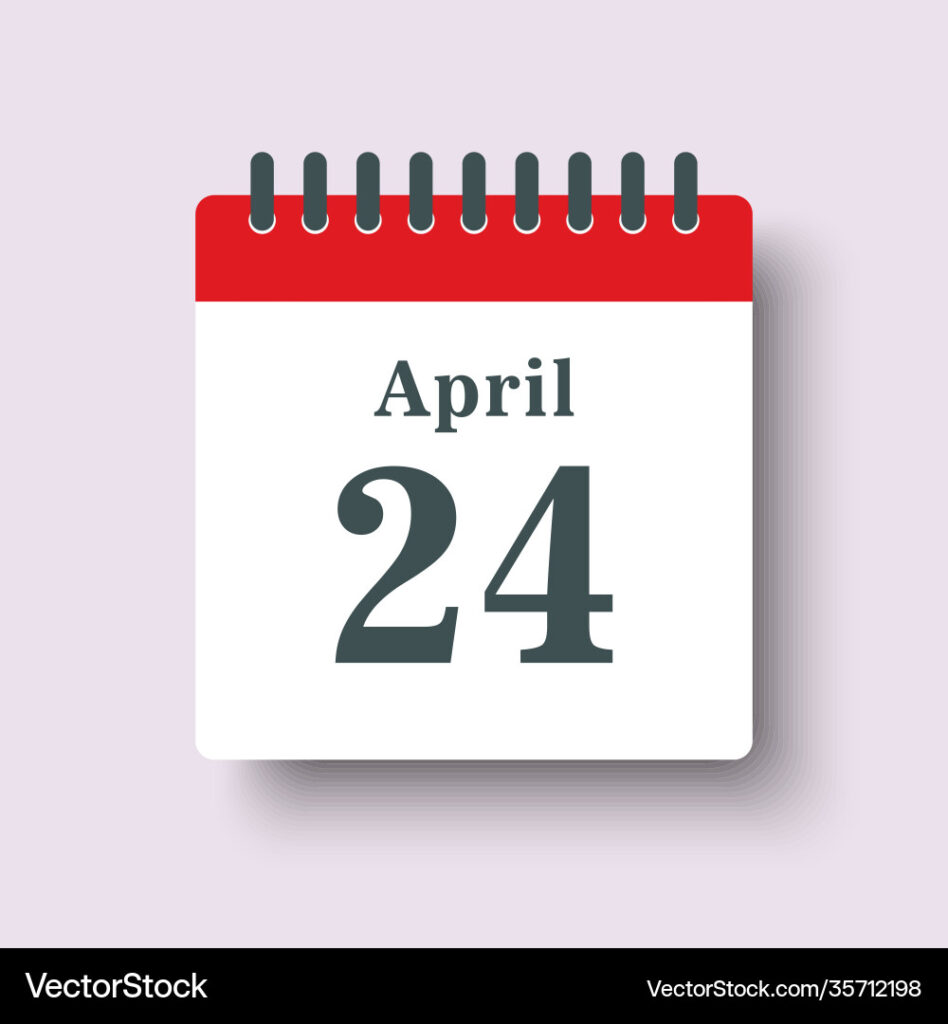April 21st has witnessed a myriad of significant events spanning centuries and continents, shaping the course of world history and leaving a lasting impact on the collective memory of humanity. From pivotal battles and revolutions to groundbreaking scientific discoveries and cultural milestones, this date serves as a poignant reminder of the rich tapestry of human experience. Let us embark on a journey through time to explore some of the key moments that have occurred on April 21st throughout history.
1. 753 BC: Traditional Founding of Rome
According to Roman mythology, April 21st marks the traditional date of the founding of Rome by Romulus in 753 BC. While the historicity of this event is debated among scholars, it nonetheless symbolizes the legendary origins of one of the greatest civilizations in human history.
2. 1509: Henry VIII Becomes King of England
On April 21st, 1509, King Henry VII of England passed away, and his son, Henry VIII, ascended to the throne. Henry VIII’s reign would be marked by dramatic political and religious upheavals, including the English Reformation and his tumultuous marital affairs.
3. 1782: Siege of Gibraltar Begins
During the American Revolutionary War, the Siege of Gibraltar began on April 21st, 1782, as French and Spanish forces laid siege to the British-held fortress of Gibraltar. The siege would last for over three years, ending in British victory and the continued possession of Gibraltar.
4. 1836: Battle of San Jacinto
The Battle of San Jacinto took place on April 21st, 1836, near present-day Houston, Texas. It was a decisive engagement of the Texas Revolution, resulting in the defeat of Mexican forces under General Santa Anna by Texan troops led by Sam Houston. This victory paved the way for the independence of the Republic of Texas.
5. 1918: The Red Baron Shot Down
April 21st, 1918, marked the death of Manfred von Richthofen, also known as the “Red Baron,” the famed German fighter pilot of World War I. Richthofen was shot down and killed during aerial combat over Vaux-sur-Somme, France, bringing an end to his legendary career as the top-scoring ace of the war.
6. 1960: Brasília Becomes Brazil’s Capital
On April 21st, 1960, Brasília was officially inaugurated as the capital of Brazil, replacing Rio de Janeiro. The city, designed by architect Oscar Niemeyer and urban planner Lúcio Costa, represents a landmark in modernist architecture and urban planning.
7. 1975: South Vietnam Surrenders
On April 21st, 1975, the government of South Vietnam surrendered to North Vietnamese forces, effectively ending the Vietnam War and reunifying the country under communist rule. The fall of Saigon, renamed Ho Chi Minh City, marked a significant turning point in the conflict and a moment of reckoning for the United States.
8. 1989: Tiananmen Square Protests Begin
The pro-democracy protests in Tiananmen Square, Beijing, began on April 21st, 1989, with thousands of students and workers gathering to demand political reforms and greater freedoms. The demonstrations would escalate in the following weeks, culminating in a violent crackdown by Chinese authorities on June 4th.
9. 2008: International Rome Conference on Food Security
On April 21st, 2008, the International Rome Conference on Food Security was convened by the United Nations Food and Agriculture Organization (FAO) in response to the global food crisis. The conference aimed to address the challenges of food security and hunger affecting millions of people worldwide.
10. 2016: Prince Dies
On April 21st, 2016, the world mourned the death of legendary musician Prince, who passed away at his Paisley Park estate in Minnesota, United States. Prince’s innovative music and electrifying performances had a profound influence on popular culture and left an indelible legacy in the world of music.
April 21st holds notable significance in Indian history, witnessing pivotal moments that have shaped the country’s trajectory and influenced its cultural, political, and social landscape. From movements for independence to landmark judicial decisions and cultural milestones, let’s explore some of the key events that have occurred on this date throughout Indian history.
1. 1930: Birth of R. K. Narayan
Renowned Indian author R. K. Narayan, celebrated for his timeless novels set in the fictional town of Malgudi, was born on April 21st, 1906. His works, including “Swami and Friends,” “The Guide,” and “Malgudi Days,” capture the essence of Indian life with wit, humor, and keen observation, earning him international acclaim and a lasting legacy in Indian literature.
2. 1938: Death of Ghadar Movement Leader Kartar Singh Sarabha
Kartar Singh Sarabha, a prominent leader of the Ghadar Movement, sacrificed his life for India’s independence. He was executed by the British colonial authorities on April 21st, 1915, at the young age of 19. Sarabha’s unwavering commitment to the cause of freedom and his fearless opposition to British imperialism continue to inspire generations of Indians.
3. 1938: Birth of Veerappa Moily
Veerappa Moily, an eminent Indian politician and former Chief Minister of Karnataka, was born on April 21st, 1940. Moily has held several key ministerial positions at both the state and central levels and is known for his contributions to public service, governance, and legislative reforms in India.
4. 1952: First General Elections in Independent India
On April 21st, 1952, the first general elections were held in independent India, marking a historic milestone in the country’s democratic journey. The elections saw the participation of millions of voters across the nation, cementing India’s status as the world’s largest democracy and setting the stage for regular democratic processes in the years to come.
5. 1962: Birth of Indian Cricketer Sanjay Manjrekar
Former Indian cricketer Sanjay Manjrekar, known for his elegant batting style and astute cricket commentary, was born on April 21st, 1965. Manjrekar represented India in international cricket during the 1990s and later transitioned to a successful career as a cricket commentator and analyst.
6. 1989: Death of Ravi Shankar
Ravi Shankar, the legendary sitar maestro and cultural ambassador of India, passed away on April 21st, 2012. Shankar’s groundbreaking collaborations with artists from around the world helped popularize Indian classical music on the global stage, earning him widespread acclaim and accolades, including multiple Grammy Awards.
7. 1993: Death of Dhirubhai Ambani
Dhirubhai Ambani, the visionary founder of Reliance Industries Limited, one of India’s largest conglomerates, passed away on April 21st, 2002. Ambani’s entrepreneurial genius and innovative business strategies revolutionized India’s corporate landscape, propelling Reliance Industries to unprecedented heights of success and transforming the country’s economy.
8. 2014: Supreme Court Recognizes Transgender Rights
On April 21st, 2014, the Supreme Court of India delivered a landmark judgment recognizing the rights of transgender individuals and affirming their equal status under the law. The historic verdict marked a significant step forward in the fight for gender equality and LGBTQ+ rights in India, setting a precedent for greater inclusivity and acceptance.
9. 2016: Launch of India’s First Reusable Space Shuttle
On April 21st, 2016, India’s space agency, ISRO, successfully launched the country’s first indigenous reusable space shuttle, known as the Reusable Launch Vehicle-Technology Demonstrator (RLV-TD). The milestone achievement demonstrated India’s growing prowess in space exploration and paved t
Conclusion
April 21st stands as a day imbued with historical significance, bearing witness to moments of triumph and tragedy, revolution and remembrance. From the founding of Rome to the fall of Saigon, each event encapsulates the complexities and richness of human history, reminding us of the enduring impact of the past on the present and the future. As we reflect on these milestones, let us draw inspiration from the lessons of history and strive to create a more just, peaceful, and equitable world for generations to come.






